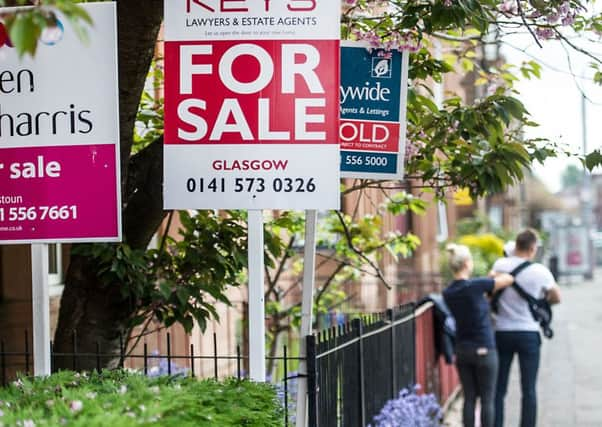Jeff Salway: Hoo-ha over help-to-buy distracts from real issue


That’s how the summer silly season works. “Traingate” probably falls into that category, as does the furore over help-to-buy (HTB) Isas.
Certain commentators were frothing at the mouth with outrage last week when it emerged that the products are somewhat flawed.
Advertisement
Hide AdAdvertisement
Hide AdThere is an issue with them, that’s true. The pledge that came with the accounts was that the cash saved into them would get a 25 per cent government top-up, providing savers with up to £3,000 towards a deposit.
But the small print stipulates that the top-up can’t be used for the initial 10 per cent deposit payable to the seller on exchange of contract. Instead it’s added when the sale completes, the idea being that savers can’t walk away from the sale and instead pocket the cash.
That’s clearly not ideal, but the HTB bonus is still more than useful in that it’s factored in when the lender is working out how much you can borrow.
The HTB issue is no scandal. It’s just rubbish communication about products, something consumers of financial services are all too familiar with. First-time buyers aren’t being prevented from getting on the housing ladder by a glitch in a product.
The obstacle they face is a dysfunctional housing market. Both the Scottish and UK governments are failing miserably when it comes to housebuilding and the chronic lack of supply is driving up both house prices and rents.
Decent first-time buyer properties in Edinburgh, for example, are selling at prices well above the valuation within days of going on the market. One seller told me recently that she’d had more than 50 viewings within five days of putting her flat on the market. There were 18 bids, the successful one paying £45,000 above the £185,000 asking price.
First-time buyers, also seeing rents increasing at a rate far outstripping wage inflation, don’t stand a chance unless they have affluent relatives willing to chip in. No wonder Shelter Scotland has warned Scotland “risks creating a ‘generational gulf’ between the housing haves and have-nots”.
But policymaking is based on the housing market of 20 years ago, when most first-time buyers simply rented until they’d saved enough for a deposit. After seven years of rock-bottom interest rates, stagnating pay and rising rents, it’s no longer that straightforward.
Advertisement
Hide AdAdvertisement
Hide Ad“Private renters consistently spend a higher proportion of their incomes on housing than any other tenure group,” according to the Resolution Foundation.
Government home ownership schemes are largely ineffective and often counter-productive (pushing house prices up). They rely on large savings pots at a time when it’s virtually impossible even for renters on mid-to-high incomes to put money aside. Most private renters wanting to buy a home are struggling to save more than £100 a month once rent, bills and other costs were accounted for, according to recent Shelter research.
It doesn’t matter whether HTB and other initiatives are flawed or deceptive. That’s just a distraction. The real scandal is the ongoing shortage of affordable homes to buy and to let and which neither Holyrood nor Westminster has much appetite for tackling.